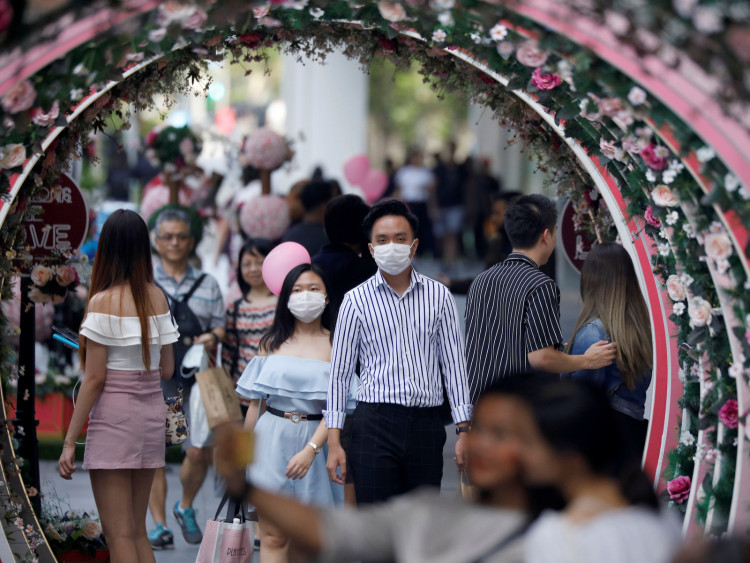Singapore announced a lavish economic stimulus package amounting to $3.6 billion (S$5.1 billion) Monday to further dissipate the massive economic damage being wrought on its economy by a resurgent COVID-19 pandemic.
The new spending came a day after the country reported its biggest single-day jump in COVID-19 cases Sunday. The additional 120 new cases bring its total count to 1,309 cases with six deaths, said the Ministry of Health.
It also came two days after prime minister Lee Hsien Leung announced stricter safe distancing measures due to the unexpectedly large increase in daily confirmed cases. The new safe distancing rules take effect Tuesday. On Friday, Singapore reported 65 new cases, taking its casualty toll to 1,114 with five deaths.
"Looking at the trend, I am worried that unless we take further steps, things will gradually get worse or another big cluster may push things over the edge," said Lee.
The new stimulus package unveiled Monday by deputy prime minister and finance minister Heng Swee Keat, along with the previous two stimulus packages, means Singapore has set aside $41.7 billion (S$59.9 billion), or 12% of the country's gross domestic product, to combat the economic crisis triggered by the pandemic.
Heng said the latest stimulus will help businesses and households survive the coming month, during which the stricter safe distancing measures announced by Lee will take effect. The latest spending package includes larger wage subsidies for all companies in April; waivers on rental and foreign worker levies for businesses and a cash payout of $417.70 (S$600) each for all adult Singaporeans.
Heng said the massive additional stimulus will bring Singapore's annual budget deficit to $30.8 billion (S$44.3 billion) or 8.9% of GDP. He said the government will draw an additional $2.9 billion(S$4 billion) from its reserves to fund the stimulus.
Lee said the new measures are "a circuit breaker" that will help to reduce the risk of a larger pandemic. "This circuit breaker will apply for one month, in the first instance," said Lee.
The measures include:
* Shutting most business firms except those offering "essential services." These include food establishments, hospitals, and transport.
* Closing all schools temporarily and move lessons online starting April 8.
* Advising people to stay at home and avoid socializing with others beyond their own household.
"We have decided that instead of tightening incrementally over the next few weeks, we should make a decisive move now, to pre-empt escalating infections" said Lee.






